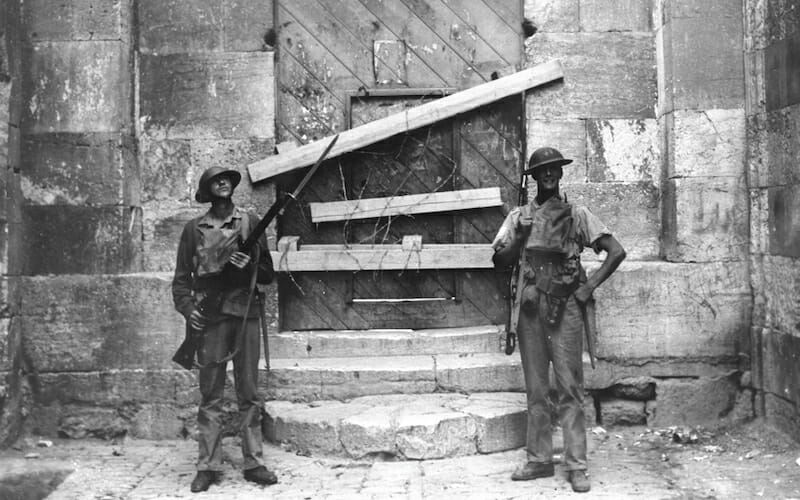
Balfour Declaration at 100
On November 2, 1917, British Foreign Minister Arthur Balfour wrote the Balfour Declaration which favored the establishment of a national homeland for the Jewish people in the land of Palestine. A hundred years since the Balfour Declaration was implemented, there seems to be no end in sight for the Israel-Palestine conflict. For many Jews, the Balfour declaration established the platform for the creation of the State of Israel, and the establishment of self-determination for the Jewish people. However, for many Palestinians, they have felt the effects of Zionism as a political entity, and many victims of ethnic cleansing had to leave their homes when the State of Israel was established in May of 1948. The direct result of the British Empire enabling the Zionist project to take root in Palestine left many Palestinians dispossessed in order to make room for a Jewish state.
The Balfour Declaration was a very short, but an enormously important 67-word letter to Lord Walter Rothschild that had some lasting consequences that are still being felt today. While the Israelis who supported the State of Israel are celebrating and the Palestinians are mourning and protesting, the British Government is caught in the middle because of its role in the Middle East a century ago, and in a way, it is the encapsulation of the ongoing deadlock to the Israel-Palestine conflict. It should be important for all of us to understand the real meaning of what the Balfour Declaration is and what the consequences of it were both short and long term. Without the Balfour Declaration, there would be no state of Israel.
What drove the British to issue the Balfour Declaration is a debatable question. Some historians say that the declaration was meant to protect British imperial interests in the Middle East, some also say that it was anti-Semitic because some members of the British Establishment wanted to get rid of Jews in England and send them to Palestine. 1917 marked the penultimate year of the First World War at the height of the British Empire when the British, along with the French and the Russians fought the Germans, Austro-Hungarians, and the Ottoman Turks. In that same year, the Russian Revolution took place, which was a very nervous moment for the allied powers who had many casualties on the Western Front against the Germans, and the British were struggling to drive the Ottoman Turks out of the holy land.
The premier objective that the British thought they would achieve through the Balfour Declaration was the belief that the United States who hsd just entered the war, and Russia who was on the brink of leaving the war, could be brought back into the fight, and when the First World War ended, there would be a clear recognition of Jewish rights. The other factor was that when the First World War progressed, the British feared that the French would prevail over the control of the holy land. France was the premier ally of Great Britain during the war, but Britain used Zionism as a lever to contain the increasing French influence in the Middle East which had considerable resonance in the British bureaucracy. Most of the First World War was fought on the borders of Germany, Austria-Hungary, and Russia, but in the middle of this chaos were five and a half million Jews trying to find a way out of the war. And so, Chaim Weitzman was very attuned to the desperation of the masses of European Jews. Chaim Weitzman envisioned Palestine as the solution because he knew that the European countries would not open their borders to massive Jewish emigration.
In the wake of the chaos from the First World War, the British made a significant promise to the indigenous population of Palestine. The promise made to Sharif Hussein bin Ali of Mecca was that with the support of the Arabs against the Ottoman Turks in the First World War, the Sharif of Mecca would, in return, get his own independent Arab kingdom. This was a promise that the British never kept to the indigenous population. There is no question that the Jews of the Russian Empire were suffering in Europe, but Palestine was already inhabited by an indigenous population, and it proved to be difficult for the Zionist movement to plant other people in another land. And so, as a result, this was the biggest flaw in paving the way for a Jewish state. The fundamental source of the problem with the Balfour Declaration was that nothing would be done to prejudice the civil and religious rights of the existing non-Jewish communities, which constituted an overwhelming percentage of the population. However, the Balfour Declaration built a Jewish homeland for the Jewish people that totally ignored the indigenous population, namely, the Palestinians that were already living there, and there was no way around this.
Edwin Montagu, who was the only Jewish member of the British cabinet at the time, rejected the Balfour Declaration saying that if Palestine is the home of the Jewish people, then we will be treated as wanderers. In fact, Montagu called Zionism, “a mischievous political creed, untenable by any patriotic citizen of the United Kingdom.” One of the major effects of the Balfour Declaration was for the Jewish people to settle in Palestine by right and not by sufferance which meant immigration. In practice, the British Government tried to limit immigration. Since the 1920’s, a hundred thousand Jews flocked to Palestine, but when Adolf Hitler rose to power in Germany, that number tripled. The Balfour Declaration did save thousands of Jewish lives because without the Balfour Declaration, and without the mandate in particular, more Jews would have died.
The Palestinians never rejected housing refugees, and admitting people who were in need, but the biggest problem with Zionism was that the Zionists who came into Palestine had an agenda of making Palestine a state for themselves at the expense of the indigenous population.
Thirty years after the Balfour Declaration was issued, Palestinians were forced to give up more than half of their land to those that they considered foreign settlers, and today the Palestinians are paying the price including the Israeli occupation. A hundred years since Balfour, there is still no solution to the Israel-Palestine Conflict, and this problem has complicated the ongoing problems in the Middle East. The status quo still looks like an unviable pathway for a diplomatic solution. Israel is in full control of Palestine, and it still rules over an indigenous population, but unfortunately, the Palestinians remain politically divided between Fatah and Hamas, and there is still no unity within the Palestinian Authority. The Palestinians might not be ready to negotiate with Israel, but if the Palestinians can resolve their political divisions and create a united national front that can be ready to negotiate with Israel, then the Palestinians can agree to build a consensus to halt the occupation. The status quo for a half century has proven to be utterly unstable. Looking at the realities on the ground, and given the fact that the two-state solution is dead, the only viable solution to the Israel-Palestine conflict is for the Palestinians to acquire the same rights as the Israelis under one government, and hopefully this can heal the wounds of the terrible damage done to the Palestinian people since the Balfour Declaration.

